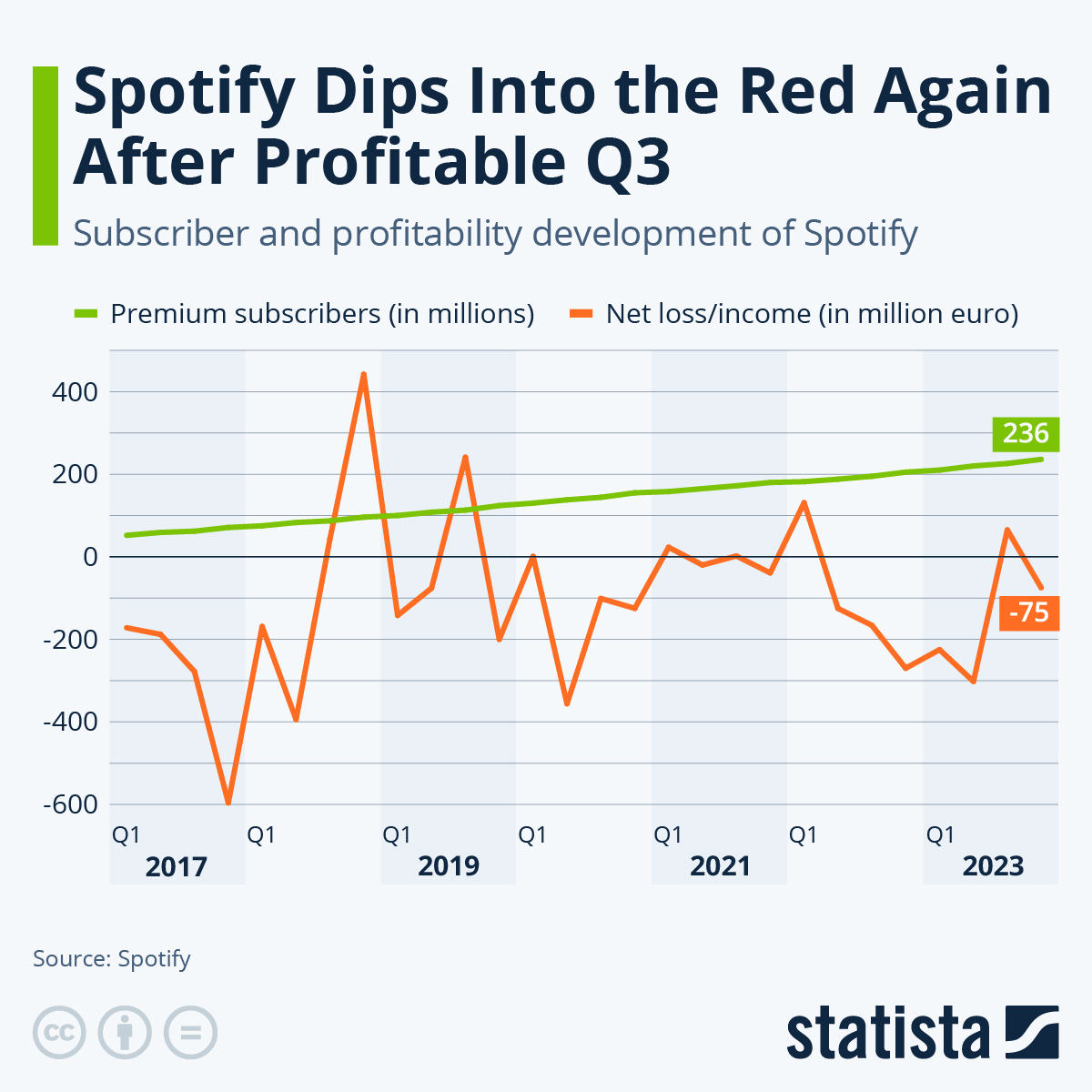After publishing its financial results for the second quarter of 2024, Spotify seems to be on track for a major milestone: recording its first year of turning a profit. In the first six months of 2024, the streaming service generated 471 million euros in net income, pushing the company towards the possibility of its first year in the black since the streaming platform launched.
This profitability is closely connected to the service's premium subscribers. The Swedish streaming service had a slow start in terms of paid subscriptions when it was launched in 2008, taking around two years to hit the mark of one million premium users. However, its user base quickly grew after the service became available in the United States in 2011. Exhibiting a compound annual growth rate of 61 percent over 14 years, the service reached 236 million paying subscribers at the end of 2023. In the first six months of 2024, Spotify added another ten million, slightly less than normal for the company's first two quarters of a year.
As our chart based on company data and media reports shows, the Swedish streaming service came close to becoming profitable on an annual level many times, most recently in 2021. This can most likely be attributed to the coronavirus pandemic and an increasing number of people staying home due to social distancing regulations and turning to digital services like audio and video streaming platforms.
Spotify CEO Daniel Ek claimed that his company improved on monetization due to price hikes in all major markets and expanding "subscription offerings to consumers who might be looking for different types of content" in Spotify's Q2 2024 earnings call. A less positively connotated factor contributing to Spotify's profitability is the mass layoffs by tech companies in 2022 and 2023. This past year alone, the Swedish streaming service fired more than 2,300 people according to layoffs.fyi, reducing its pre-2023 workforce of around 10,000 to around 7,400 by the end of June 2024. Spotify also mentioned "lower personnel and related costs" as an income driver in its Q2 shareholder deck.
The streaming service's end goal, for the time being, is to reach one billion subscribers by 2030. Spotify has been growing by an average of 24 million subscribers per year since 2018. With huge markets like China unlikely to adopt the platform, TikTok most likely rolling out its streaming service to more markets in 2024 and the world economy only recovering slowly due to ongoing crises, achieving this landmark number seems improbable.





















